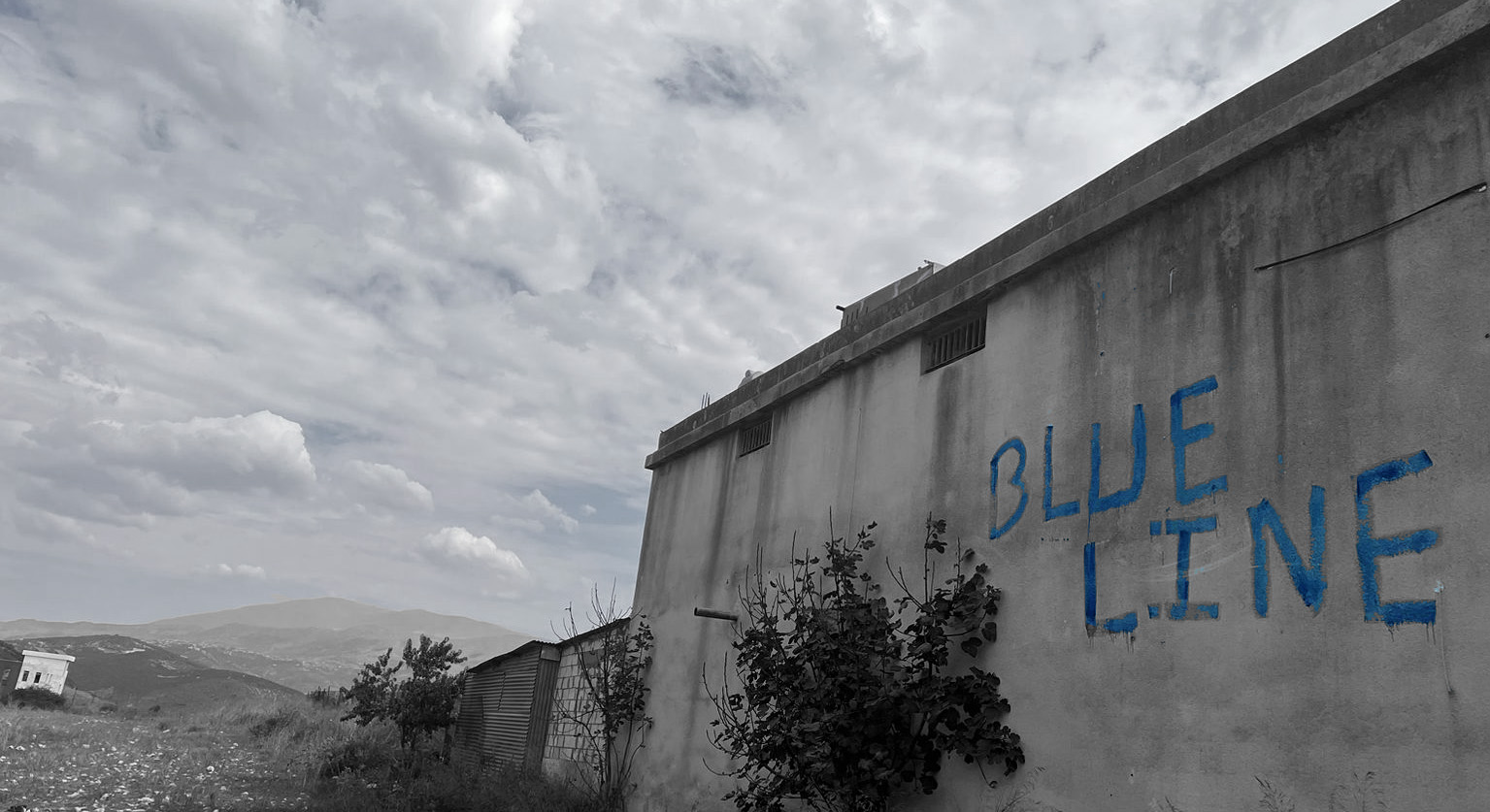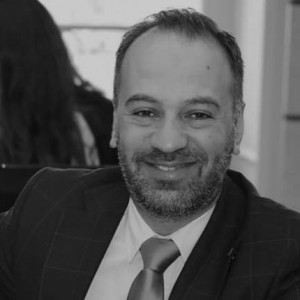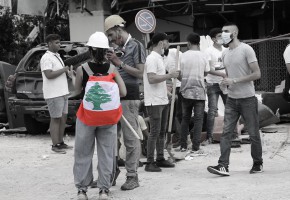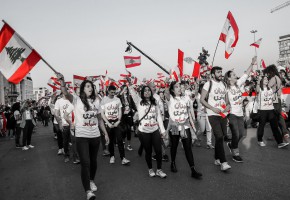
Lebanese Authorities Are Completely Absent from the South - Farouk El Moghrabi

Lebanese Authorities Are Completely Absent from the South - Farouk El Moghrabi
Israel began attacking Lebanon the day after Operation Al-Aqsa Flood. Journalist Issam Abdallah and his wounded colleagues were the first victims of these attacks. Issam was killed, and six other journalists were wounded on October 13, 2023, when Israel deliberately targeted their location. The attacks continued, including bombing and burning olive fields with white phosphorus.[i] The killing of civilians also continued, from three children and their grandmother[ii] to killing Al-Mayadeen TV reporters[iii] and bombing peaceful homes. Israeli officials threatened to destroy Beirut and for Lebanon to suffer Gaza's fate.[iv]
What did the Lebanese authorities do?
Unfortunately, the Lebanese state not only abandoned its duty to protect Lebanese lands and citizens, but it also abandoned its minimum legal and diplomatic responsibilities. It made the Lebanese, the residents of the south and victims in particular, feel that the state does not care about their interests or work to achieve their rights.
The Lebanese should have become a legal and diplomatic beehive concerned with planning and working to prosecute Israeli war criminals and condemn them internationally. However, the Lebanese government, as usual, contented itself with submitting complaints to the Security Council as a routine procedure to absolve it of its responsibilities to some extent.
What can the Lebanese government do?
The Lebanese government must immediately begin documenting all Israeli attacks following international standards and protocols used by investigation and fact-finding committees. It could do so by activating the work of the International Humanitarian Law Committee and reporting committee and following up on the recommendations issued by the treaty committees established pursuant to Decree No. 3268 dated 6/28/2018. This would enable its members to carry out their duties or establish any mechanism the government considers appropriate.
After documenting all the attacks, the government's action must proceed in four directions. The first is to resort to special procedures and the Human Rights Council (HRC) at the United Nations. The second is to resort to the International Court of Justice (ICJ). The third is to resort to the International Criminal Court (ICC). And the fourth is to resort to the universal jurisdiction of national courts.
Track One: HRC
- The Lebanese government must support the victims and assist them with the expertise required to submit reports to the special rapporteurs at the United Nations concerned with Israeli attacks. They are independent experts appointed by the United Nations Human Rights Council, and their appointment is based on jurisdiction in a geographic region or specific subject[v]. On 14/1/2024, for example, the Special Rapporteur on the Promotion and Protection of the Right to Freedom of Expression and Opinion, the Special Rapporteur on Human Rights Defenders, and the Special Rapporteur on Extrajudicial Killings published a joint letter they sent to Israel regarding the killing of journalist Issam Abdallah[vi] and injuring six other journalists. Other special rapporteurs must also be contacted, such as the Special Rapporteur on the Human Rights of Internally Displaced Persons and the Special Rapporteur on Human Rights and the Environment.
- The Lebanese government must initiate a serious diplomatic track to establish a fact-finding committee at the HRC, similar to the one established during the July 2006 War.[vii] At the time, a request was submitted for the Arab Group and the Islamic Conference by the Tunisian representative. The Council holds three regular sessions annually, in February-March, June-July, and September-October. Furthermore, the Human Rights Council may hold extraordinary sessions under paragraph 10 of General Assembly Resolution 60/251, dated March 15, 2006[viii], upon a request from a member if the request receives the support of a third of the members.
The government must exert diplomatic efforts to obtain one-third for an extraordinary session and vote on a fact-finding committee. It should focus on giving the committee the right to issue a list of potential perpetrators, even if it remains secret. This procedure is essential for the possibility of accountability in the future in light of the lack of a statute of limitations on war crimes.
Track Two: ICJ
The Lebanese state can sue Israel before the ICJ under Article 9 of the Convention on the Prevention of the Crime of Genocide in light of the successive Israeli threats to destroy Lebanon in the same manner as Gaza. Article Three of the agreement punishes direct and public incitement to commit the crime of genocide. Per Article 8 of the Convention, the Lebanese state may request from the competent United Nations organs to take measures it deems appropriate in line with the UN Charter to prevent and suppress acts of genocide or any of the other acts mentioned in Article Three.[ix] The court may or may not interpret the issue as incitement to genocide. However, the Lebanese government must carry out its duties to preserve its sovereignty, especially after the South African lawsuit and especially in the face of the integration of the war in Gaza with southern Lebanon.
Track Three: ICC
The ICC has jurisdiction when a claimant state is a signatory to the Rome Statute, which established the court. Moreover, the crimes should be within the court's competence and are of a grave nature.[x]
However, Lebanon is not a party to the convention, which gives us two options. The first option involves the Parliament ratifying the treaty, which is impossible. The second is based on Article 12, Clause 3 of the Rome Statute, which allows resorting to the court without prior ratification by the House of Representatives. However, that case requires sending an official notification from the Lebanese government to the court, giving it the authority to investigate crimes occurring within a specific time. This was something Ukraine did after Russia attacked its territory in 2014.[xi]
Track Four: National Courts with International Jurisdiction
The international jurisdiction of national courts relates to the criminal responsibility of individuals and not states. It allows national courts to try individuals, regardless of their nationalities, who are accused of committing serious crimes such as genocide, crimes against humanity, or war crimes. Recently, several rulings were issued against Syrian officers by German and Dutch courts. Another example is the arrest warrant issued by the French judiciary against Syrian President Bashar al-Assad. Thus, Israeli officers and officials who commit crimes against the Lebanese people in other countries must be prosecuted on this basis.
In this case, the Lebanese state must provide legal assistance to victims to file their claims outside Lebanon against Israeli officers and officials. It should also provide them with technical support, namely investigations and evidence that prove the involvement of Israeli officials and officers in such crimes. This support cannot be done without accurate and professional documentation and an investigation process following the protocols. There is no doubt that UNIFIL must be contacted to carry out its role under Resolution 1701, which is to monitor the cessation of hostilities[xii] by conducting transparent and public investigations of all Israeli violations.
The Lebanese state faces a significant challenge to prove that there is still a nucleus of a state that can be built upon in a time of disintegration of entire institutions.
Farouk El Moghrabi
Reference:
[i] https://www.amnesty.org/en/latest/news/2023/10/lebanon-evidence-of-israels-unlawful-use-of-white-phosphorus-in-southern-lebanon-as-cross-border-hostilities-escalate/
[ii] https://www.aljazeera.net/news/2023/11/5/%D9%84%D8%A8%D9%86%D8%A7%D9%86-64
[iii] https://www.ifj.org/media-centre/news/detail/category/press-releases/article/lebanon-israeli-strike-kills-al-mayadeen-tv-reporter-and-cameraman-in-tayr-harfa
[iv] https://www.youtube.com/watch?v=8iTw6Z07SQU&ab_channel=TheTimesandTheSundayTimes
[v] https://www.ohchr.org/en/special-procedures-human-rights-council
[vi] https://spcommreports.ohchr.org/TmSearch/SearchCode?code=ISR%2012/2023;ISR%2010/2023
[vii] https://documents-dds-ny.un.org/doc/UNDOC/LTD/G06/133/00/PDF/G0613300.pdf?OpenElement
[viii] https://www.ohchr.org/ar/publications/policy-and-methodological-publications/united-nations-human-rights-council-practical
[ix] https://www.icrc.org/ar/doc/resources/documents/misc/62sgrn.htm
[x] https://www.icc-cpi.int/sites/default/files/iccdocs/otp/OTP-Policy_Paper_Preliminary_Examinations_2013-ENG.pdf
[xi] https://www.icc-cpi.int/news/ukraine-accepts-icc-jurisdiction-over-alleged-crimes-committed-20-february-2014#:~:text=Today%2C%208%20September%202015%2C%20the,territory%20since%2020%20February%202014.
[xii] https://peacemaker.un.org/sites/peacemaker.un.org/files/IL-LB_060814_SCR1701%28ar%29.pdf
Recent publications

Thematic Report: Exploiting Resources, Ignoring Rights: A Political Ecology of Water and Energy in the Arab World
Related publications


